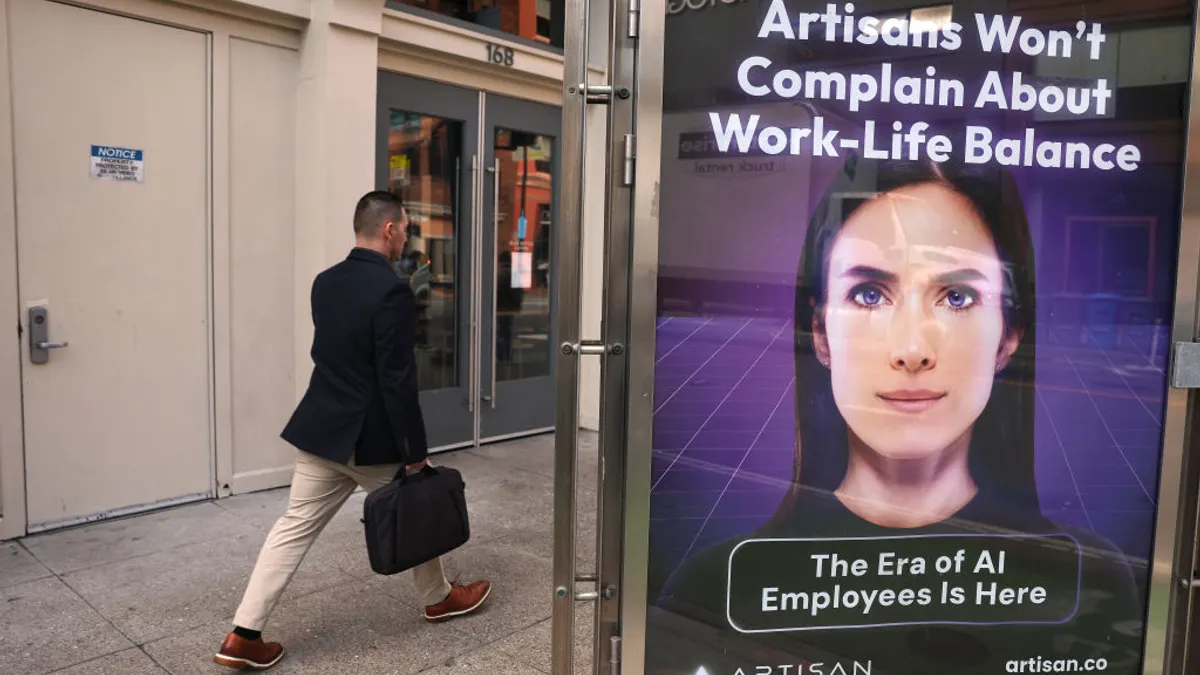In an ever-increasing war for talent, recruiters are working hard to sell employers' brands. A company's reputation can affect whether candidates accept job offers, or even apply in the first place.
In fact, 69% of job seekers say they won't apply to a company with a bad reputation, even if they're currently unemployed.
Presently, there is a wealth of information to be found on multiple review platforms: Glassdoor, LinkedIn, CareerBliss and Fairygodboss, to name a few. Then there are the dozens of “top companies to work for” lists released each year, not to mention the ease of searching social media platforms for everything that's ever been said about a company.
So what can a recruiter do if a company name carries a negative connotation? Here are three common problems and tips for employers who have less than a stellar reputation.
A little bit of transparency can go a long way
When a company receives unwanted press attention, transparency is key, according to Greg Moran, President and CEO of OutMatch.
“While a recruiter should be focused on the position to be filled, they also need to be aware that candidates likely know about the issues surrounding the company’s recruitment brand," he told HR Dive. “If questions are raised, address them directly."
Also, start by explaining the specifics of whatever situation has hurt your brand and clearly discuss what steps your company is taking to address it, he recommended; "Avoiding negative information will only make a candidate more concerned that your company is not taking it seriously."
Own your reputation
It only takes a few minutes for an employee to use a public platform to blast their employer. And once it’s there, it’s there forever.
The best defense, here, is a good offense, according to Chris Carlson, president at Sales Talent. Many companies do an inadequate job of owning their reputations, which includes reviews found on Glassdoor and other platforms. He suggests that companies take the time to encourage star employees to share their experiences on these websites.
“If you just let Glassdoor work organically, the person most likely to post is the upset person," Carlson said. "Get proactive about encouraging star happy people to write an authentic review. Remember, A-players want to work with A-players.”
But don't make the mistake of requesting that all your employees start writing positive reviews just after a few scathing ones — this is far too obvious and candidates are wise to this practice. “One of the new currencies of the job market is transparency,” Carlson said; when management responds promptly and appropriately, even a controversial event can be turned into a new and better relationship with candidates.
“If you see bad reviews as a negative thing, you are missing out on a valuable resource,” he continued. Leaders should routinely read through reviews and use this feedback to pinpoint where it’s coming from within the organization. It could be coming from one department or area of the company and this information can be used to prioritize efforts to improve the situation and boost retention.
Identity fraud
Sometimes, a brand reputation gets banged up because someone is impersonating the company, according to Asaf Cidon, vice president of content security services at Barracuda Networks. The firm, which provides software and systems that help crack down on fraud, knows all too well the danger that companies face.
The latest threat comes from "spear-fishing," a sophisticated method that hackers use to infiltrate company information and damage their reputations, Cidon told HR Dive. This practice is becoming rampant on social media sites like LinkedIn where a scammer takes the persona of a person of authority, like a member of the executive team or a recruiter, to access sensitive information.
“LinkedIn is a common channel attackers will use," Cidon said. This is because other networks like Facebook have fraud assistance, and some level of restrictions. On LinkedIn, a scammer can go unnoticed because he can build a network slowly — not drawing much attention.”
Small companies also tend to be more at risk than larger ones, because they're more vulnerable to "email spoofing" — when someone sends an email that appears to be sent from a company's domain name and poses as a recruiter.
Preventing brand damage
While it’s impossible to prevent every negative review, public relations nightmare or scam, there are some steps that every company can take to protect their brand.
Training is a big part of the picture, Cidon said. If HR, recruiters and other members of the leadership team can learn about protecting the brand of the organization, there is a better chance they can maintain a positive one.
Proactively managing social channels and responding to questions and concerns can help reduce negative ratings. Employers may want to consider identifying an individual responsible for monitoring such things, with a plan in place to deal with negative information.
Exit interviews also be useful in that they allow departing employees to get things off their chest before they turn to a public forum. The same goes for regular touch-points between managers and employees.
Finally, be open and honest if a candidate brings up a negative post. And remember: “Sometimes a negative isn't a negative to someone considering a job with an organization," Carlson said. "For example, a candidate may read that they work long hours — and this can be a good thing."



















